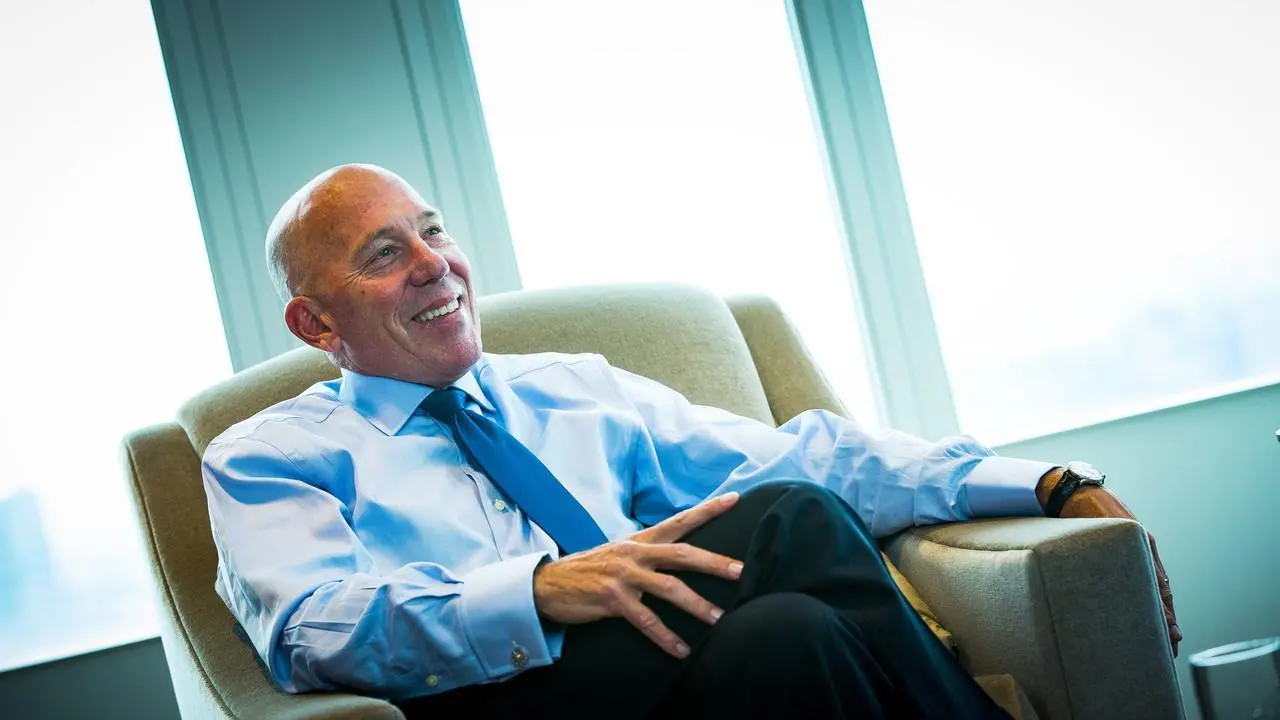Comments (4)
Emily Shaw
Great insights
Maxime Fieschi
Thanks for the insights.
Harriet Perrotton
I thoroughly enjoyed reading your article.
Martin Richardson
Insightful

Success is often thought to be easy when you are not given the entire picture. Many may assume that notable business leaders experienced smooth sailing to the top of their respective industry. But in most cases, quite the opposite is true.
When Jud Linville joined Citi as Chief Executive Officer of its Global Cards business -- the largest credit card issuer in the world -- in 2010, the business was just emerging from the shadow of the financial crisis and had seen five CEOs in six years. It was then that he started on a path to transform the business by simplifying the product portfolio, creating world-class products, and expanding key programs. And today, the business is again driving growth and customer engagement.
I had the opportunity to interview Linville on a recent episode of the Follow My Lead podcast to learn more about Citi's transformation and leadership lessons learned throughout his career.
If you are on the journey to transform your business, big or small, consider these critical leadership lessons.
The push behind any organizational transformation or for that matter a leadership change is likely the same: an enhanced future. If you lack a well-defined vision, it will be difficult to cultivate the necessary behavioral changes in your employees. Everyone must be present today to achieve tomorrow.
This is an idea that Citi has executed with near perfect execution. Linville explains it this way, "Our job is to have our nose to the grindstone and eyes on the horizon. We see the horizon, but half of the fun is seeing results from the hard work on a daily, weekly, and monthly basis."
A leader's job is to define reality and deliver hope.If you are in the midst of a transformation, do not forget to keep your nose to the grindstone. Celebrate the near-term wins resulting from your team's hard work. These advancements are never too small to acknowledge.
Transformation is certainly possible at the organizational level. This being said, it is impossible to revolutionize without developing the individuals within it. The habits of each team member influence those of an entire organization.
In 2010, Jud recalls how common it was for the employees with Citi's Cards business to be wholly focused on their Blackberrys during meetings. Because of this, a new principle was created: Everyone must be mentally present. Leaders wanted to see eyes, not the tops of heads. The more it was communicated, the more this principle took hold. Eventually, the Blackberrys stayed in pockets during meetings, thus creating a healthier habit across the business.
It is critical for your business to establish principles that coordinate with success. Ray Dalio the founder of Bridgewater Associates wrote in his book Principles, "Principles are fundamental truths that serve as the foundations for behavior that gets what you want out of life."
The better defined your organizational principles are, the better the individual habits will be of those on the team, which will help you achieve your transformational goals.
Talent plays an enormous role in any transformation. While necessary, if this is all your team has to offer, short-term achievement is all you should expect. To experience sustained progress, a leader must seek out individuals with qualities beyond talent.
Linville has preached this truth throughout his career. He cares deeply about people's intellectual curiosity, grit, and character. And this holds true for his entire leadership team. They are constantly on the lookout for people who are interested in exploring meaning and solving challenges. At the same time, these individuals must have a genuine interest in others and ability to show they care.
When looking for qualities beyond talent such as intellectual curiosity, grit, and character in other people there are many approaches you may take. It always works best to look for examples of someone displaying them in real life or asking questions in an interview to uncover how they have exemplified them before.
It does not take long for a person who has mastered a skill or job to get bored. The leaders at Citi are fully aware of this and have worked diligently to push people to the edges of their ignorance. They do this by constantly challenging individuals to further develop by shifting to a new challenge to pique their curiosity.
Linville said, "There is a natural instinct for leaders to want to hold on to their best producers, but if you aren't encouraging your best talent to welcome what's next, then you aren't really developing them."
This is straightforward in direction, but much more difficult to put into practice. It is imperative that you, as a leader, empower top producers to jump outside of their comfort zones. In moments of mastery, challenge them with new responsibilities to further individual development and your business.
A consistent theme throughout each of these lessons is the importance of evolving individuals. When you make this a priority, your organization will naturally experience a positive transformation.
Great insights
Thanks for the insights.
I thoroughly enjoyed reading your article.
Insightful
John is the CEO of LearnLoft, author of, F.M.L. Standing Out & Being a Leader and host of the 'Follow My Lead' Podcast. He writes or has been featured on Inc.com, LinkedIn Pulse, TrainingIndustry.com, eLearningIndustry.com, CNBC Money, and more. John completed his education at the University of Maryland College.
Leave your comments
Post comment as a guest